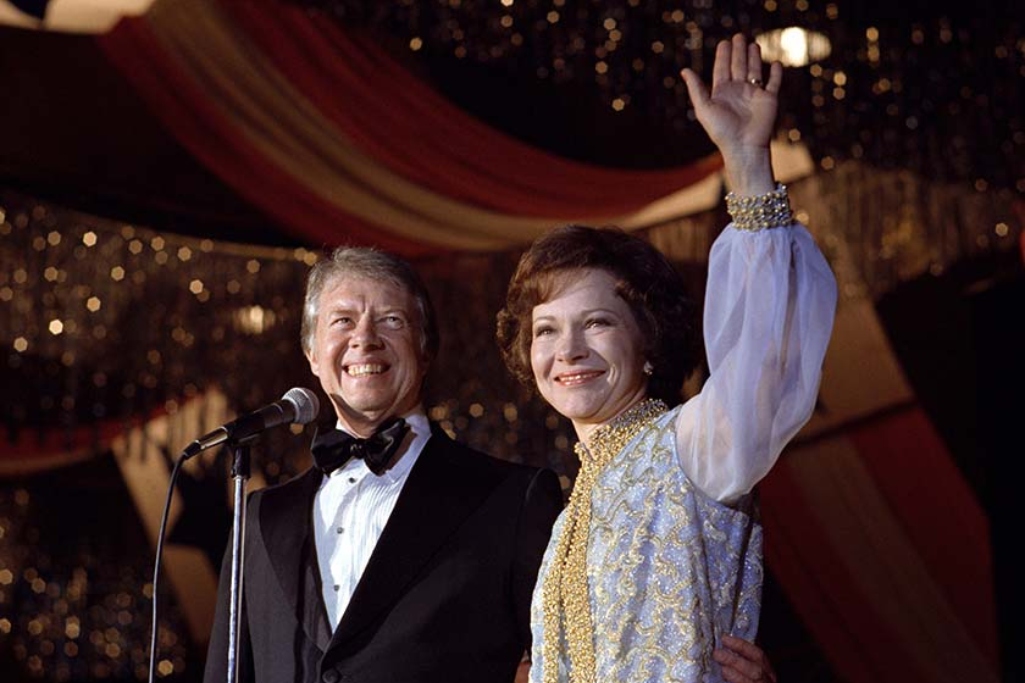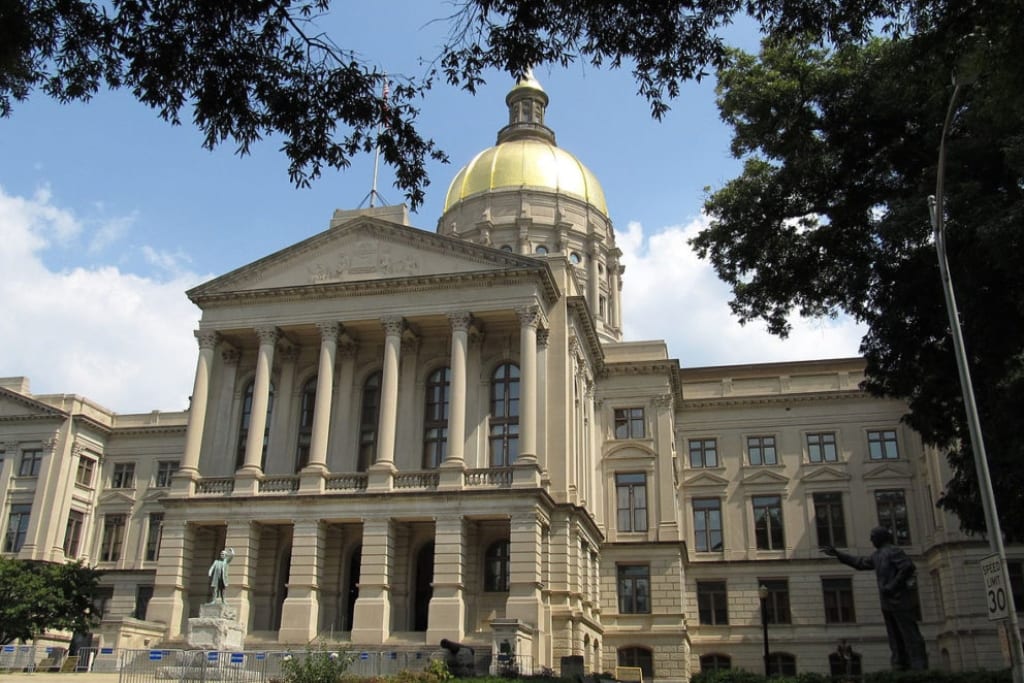Editor’s note: Sunday, Feb. 26, is Racial Reconciliation Sunday in the Southern Baptist Convention.
BRUNSWICK, Ga. (BP) – No mass burning, no bricks flung through shop windows, no cars plowing through protestors. When a video leaked of Ahmaud Arbery shot down as he casually jogged through a mostly white suburb three years ago, protests were peaceful, especially in Arbery’s hometown of Brunswick, Ga.
On the third anniversary of Arbery’s murder, with three white men serving life sentences for killing him, pastors believe justice came amid peaceful outrage because of godly relationships already in place.
“Those who would be offended that a Black was in their white neighborhood, that is very little,” Chris Winford, a white pastor who leads First Baptist Church of Brunswick, told Baptist Press ahead of the Feb. 23 anniversary. “Those three men, they were the minority.”
There are 34 Southern Baptist churches serving Brunswick and Glynn County through the Golden Isles Baptist Association, and only one of them is majority African American. For Winford and other Southern Baptist pastors there, multicultural relationships require friendships with those of other denominations and conventions.
“What I learned through the Ahmaud Arbery case, and why Brunswick did not explode …. in damaging protests,” Winford told Baptist Press, “we’re friends with one another here — Black, white, brown — we’re friends here, and we did not want to damage our friends. Two, we had godly leadership amongst the city leadership and within churches who said we want to be an example to the rest of the world on how to handle a difficult situation.”
The U.S. Census Bureau counts 15,000 people within the city limits of Brunswick, classifying more than 60 percent of them as African American, more than 33 percent as white, and nearly 7 percent as Hispanic. Among the larger Glynn County, 69 percent of the 85,000 residents are white and 29 percent are Black, according to 2021 Census Bureau estimates.
Among Winford’s friends is Todd Rhodes, pastor of the mostly African American Shiloh Missionary Baptist Church that cooperates with the National Baptist Convention USA, Inc., and the General Missionary Baptist Convention of Georgia. Rhodes gives God all the credit for peaceful protests and positive change in Brunswick.
“There weren’t any burnt buildings, and there wasn’t any turning over vehicles. The police department buildings were not destroyed and burned, and people weren’t rioting in the streets in Brunswick/Glynn County,” Rhodes said. “And I believe it’s not because of the people. And I don’t believe it’s because of the government.
“I believe it’s because of God. I believe that God has enough of His children in place. And I believe that the fervent, effectual prayer of the righteous avails much.”
Feb. 23 will forever be Ahmaud Arbery day in Georgia, by act of the Georgia General Assembly. The state has amended its vigilante justice law, barring bystanders and witnesses from making arrests. Georgia has since passed a hate crimes law, having been among only four states without such a law at the time of the murder. There’s an Ahmaud Arbery scholarship, and residents are encouraged to remember Arbery on his day by running 2.3 miles, the length of his jog on the day of his murder.
Travis McMichael, 36, and his 65-year-old father Gregory McMichael are serving life plus 20 years in prison without parole for killing Arbery. Their neighbor William “Roddie” Bryan, 52, is serving a life sentence plus five years, yet with the possibility of parole.
When more than 200 people gathered outside the Glynn County Courthouse on the day of Arbery’s sentencing, Winford was among the crowd. He took his daughter Abigail, then 14 years old, to witness history unfold.
He describes the crowd as “a beautiful mixture of Black and white, no animosity, just a rejoicing that justice was experienced, that justice occurred. That was a great learning experience. I wanted her to see history being made, and so we headed on down there. And it was a neat experience.”
Winford, who has battled colon cancer for a year, recalls the 2022 swearing-in ceremony of Brunswick mayor Cosby H. Johnson, an African American who invited Winford to deliver the invocation.
“Right before I was diagnosed, Brunswick elected their second African American mayor, and the mayor, whom I’m friends with, asked me to do the invocation at his swearing-in ceremony, which I thought was a big deal, and I thought was a great gesture and a great step in (showing) we’re in this together,” Winford said. “We are better together.”
“During my time of chemo, radiation and all those kinds of things, I had multiple African American pastors reach out, support, encourage and love me,” Winford said. In addition to Rhodes, he noted Kenny Grant, a teaching pastor at the majority-white St. Simon’s Community Church, and Paul McKenzie, pastor of Bethel Evangel Community Church, none of them Southern Baptists.
The lone Southern Baptist African American pastor in Brunswick, Wayne Rogers at The Sanctuary, a congregation of about 30 members, is recovering from the death of his wife and has not been able to conduct much intentional multicultural outreach focusing on race relations, he told Baptist Press.
Both Winford and Rhodes say friendships have formed organically with God’s help.
“Pastor Chris Winford and myself, it was just something that the Lord brought us two together,” Rhodes said. “He knows I’m here for him. I know he’s there for me. God isn’t a God of color. Our God is a God of content.
“However, because God has painted us in these various hues of color, God knows what it takes. And He’s expecting those of us who love Him to also know what it takes. … You see, here’s the thing. People are looking at the skin, and they’re saying one hates another because of their skin color.
“But it’s not a skin problem,” Rhodes said. “It’s a sin problem. Racism is a sin problem. … Man hasn’t changed since Adam.”
Winford laments that there’s only one Southern Baptist church that is majority African American in Brunswick, but said it’s not for a lack of trying. Whites comprise the largest ethnic group in the congregation he leads, followed by Hispanics.
“We still would love to have (another) African American Southern Baptist church and pastor in this area, but that just has not been accomplished yet,” he said. “As you can see we still need some work to be done here regarding our Baptist church plants. First Baptist Church, we call ourselves multigenerational, and I’m 100 percent for that. We need to be multiethnic as well, cause that’s a picture of heaven.”


